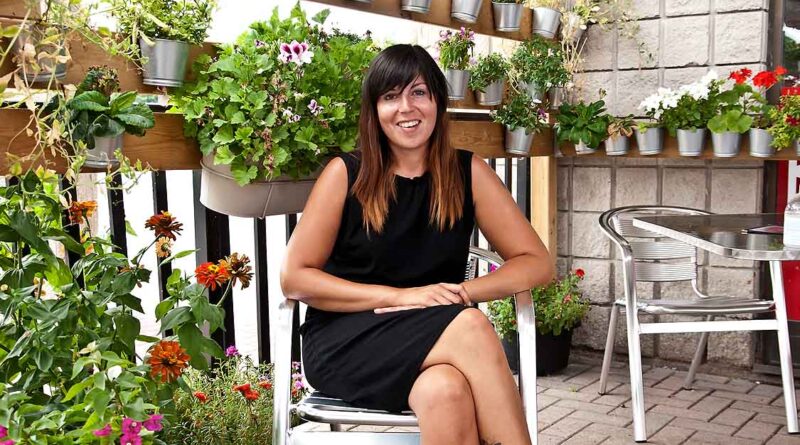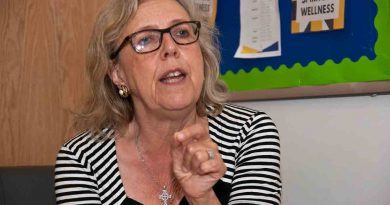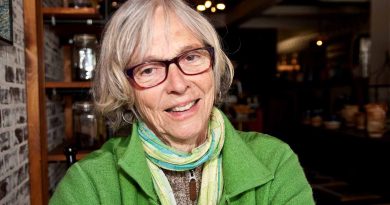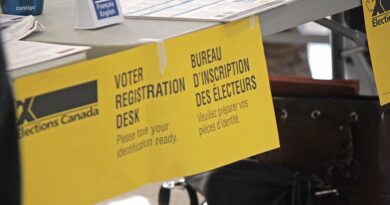Krystal Brooks: Not A Politician, But
SUNonline/Orillia profiles candidates from each party in the forthcoming federal election.
By John Swartz
Krystal Brooks is taking her first plunge into the political swamp. She is the Green Party’s candidate in Simcoe North.
“I was approached by the Green Party. They came across some of my posts on Facebook and they were interested I guess,” Brooks said.
“I don’t see myself as a politician, but I do consider myself an advocate and I think representing the Green Party and running for Simcoe North allows me an opportunity to continue to advocate, but on a much grander scale.”
She’s had a little time to meet the other candidates and she’s learning fast to say good things about her opponents, which all candidates do.
“They are all really nice. I really feel we all have something different to bring to the table,” she said. What doesn’t translate well to type is she said that with the genuine veneer of someone who just wandered into the Thunderdome and doesn’t realize Mel Gibson and Tina Turner are playing roles.
Brooks is 28 years old, has two children and her nephew lives with her.
“I’m from Rama, I was born in Orillia. I lived here most of my life,” she said. “I was in foster care, I was adopted. Until recently I never actually lived on the reserve,” She is not sure of her lineage. “I know as far as my grandmother, my grandfather I have no idea. A lot of my ancestors lived in the Toronto area,”
She didn’t finish high school and is unemployed.
“What I want to do is go to school and I want to go through a social services program. My dream job would be working in some kind of victim services field.”
Some people who have had success advise young people to do what they know. In Brooks’s case, she wants to work with people who have been victims of calamity, being a recovering addict and having been homeless, “all of these things mean a lot to me,” she said.
“I’m learning as a I go. I’ve never considered politics until now. I never saw myself as political. I’m one of those people I just poke politicians. I really think this is a great opportunity to advocate, just for a different audience and actually be able to do something about it, which is incredible, which is what I’ve been advocating for, for so many years.”
She has some strong opinions, as we will see, but unlike many who enter election races because they believe they have something to offer, and maybe not the experience with all topics likely to come up she thinks before she starts talking and tries to answer, even if she isn’t right up to speed with every subject. “I’m truly not a talented speaker. I’m out of my realm here,” she said. We will see she may be a little too critical; she is however, proud setting a mark in this election.
“I didn’t realize, I am the first candidate from Rama,” she said.
Why Be Green?
Unlike voters, we have yet to hear a candidate say they chose to run under a banner because it’s the one they don’t like the least. People can be strong and active party supporters, but not always enough to become a candidate.
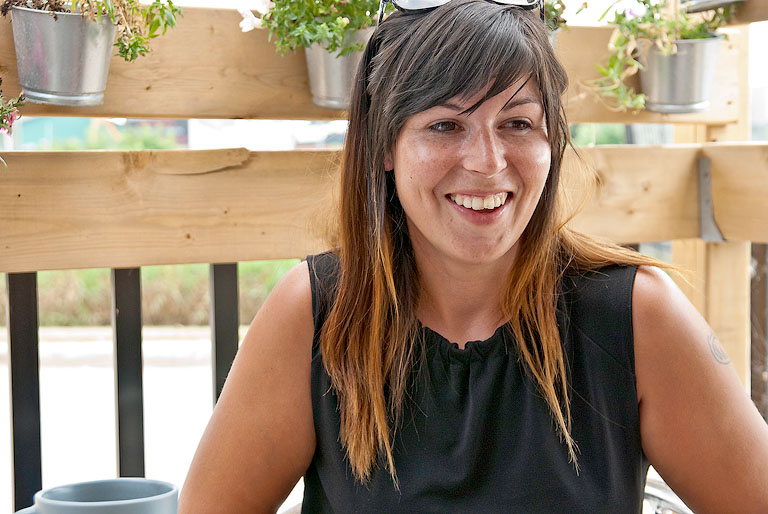
“I feel like a lot of the Green Party views are perfectly aligned with my own,” said Brooks. In this particular case, the Greens have had their troubles this year, with a leader at odds with the executive of the party. This has to have given some people pause to decide to become candidates, but Brooks is philosophical about it.
“I don’t really have much of an opinion on it. That might sound very odd. I think these things are very normal in parties. The Green Party in comparison to the other parties is a very new party. If you compare the Green Party of Canada to the German Greens, party conflict obviously is not necessary, but it’s very normal. The Germans are on the verge of converting Germany to an all Green government. They went through a lot of similar things that the Green Party of Canada is going through. I like giving that as an example because it shows these things can be overcome,” she said. Candidates have been asked what they’d change about their party, or do more of, if they had the opportunity and Brooks answer is in line with overcoming.
“I think all parties, all sectors of government, there’s a constant relationship building process that’s continuous and has to be maintained throughout the course. Building on relationships is a big one. That strengthens the unit as a whole,” she said.
What she does like is the party’s decision to let elected members vote as they see they should, even if it isn’t in line with the party’s policy.
“The Green Party is a grassroots party, we do not whip our MPs. They are not forced to toe the party line. My personal mandate is my people first, Simcoe North first, party second,” Brooks said. “I am not running for Annamie Paul, I’m not running for all of Canada, I’m running to represent the constituents of Simcoe North.”
One of the things important to know is how candidates get the information they need either to answer questions, or use their vote in the best way if elected. We all know of politicians who seem to get their info from dubious sources and don’t want to consider anything else that might conflict with what they think they know, even if it comes from people most of us consider experts, so how does Brooks expand her knowledge.
“There’s a lot of people I feel comfortable going to with questions I’m unsure of, or topics I’m not sure of. One of which is Eric Schomann (original 2019 Green Candidate). Another (previous) candidate is Valerie Powell, she is extremely dedicated and well versed to seniors and I am not, although I think I need to be and I want to be because these are very important issues. They are issues that matter most to the constituents of Simcoe North. If I don’t know about those issues, then I can’t do a good job,” Brooks said.
Policing
Natives and Blacks have been able to put policing issues in front of the rest of us who until last year thought everything was hunky-dory. She can recount examples of her personal experience.
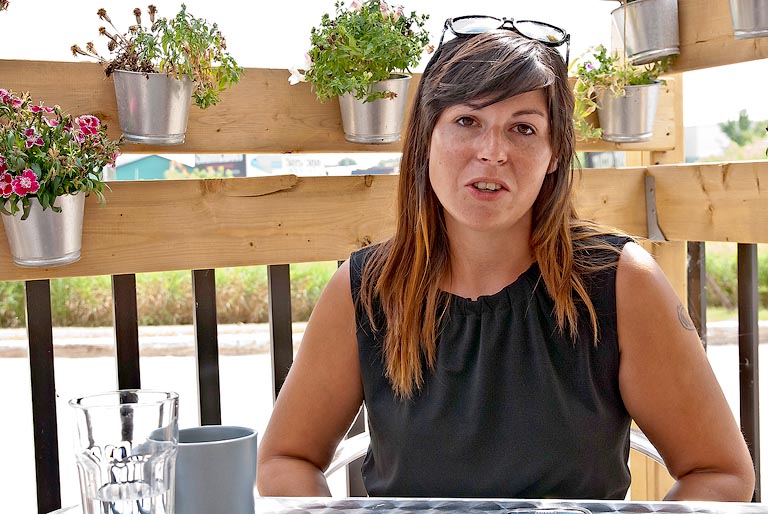
“I’m going to have to choose my words carefully and leave my own personal opinion out of this one. Only because I do have a personal investment, I was trafficked and that did involve an OPP officer. For me I have to try to separate myself from that. It’s still in the investigation stages, I can’t say too much about it,” she said. “I think when it is not being handled in a productive manner, or a way it should be handled, I think that’s when it should be taken to a federal level.”
“Change is with the justice system. At this point I wouldn’t even call it a justice system, it’s a judicial system and in many ways very ineffective. Rama, we have our own police system, which is very false. Their higher ups are RCMP, they are governed by RCMP. They work in partnership with the OPP. It’s relevant for me, but it may be irrelevant for the topic. For me this is an issue of Indigenous self-governance, and lack of, through the policing system we have. It’s very much like any police force. There’s some good cops and there’s some not so good cops. I’ve had really amazing experiences with police officers in Orillia and police officers in Rama. It’s in their heart, they want to do a good job, they want to help their community, then there’s officers that’s not what it’s about for them. They shouldn’t be officers.”
One of the things she thinks police officers lack, which happens to strike at the heart of many of the headline issues, is they don’t receive adequate training about the jobs we expect them to know and do, and especially on the topic of race. One of the things people have noticed from media reports of late is how police respond to similar situations where race is a factor. Again, personal experience illustrates her viewpoint. On Canada Day many people passed flying the Maple Leaf in favour of something reflective of the residential school system. Some used the occasion to make a political statement of a different kind according to Brooks.
“Actually on Canada Day the Canadian flag was used as a weapon toward Indigenous people. It was very odd. Many of the houses that hung Canadian flags, there was a few I know personally that never hung in their entire lives and they’ve been racist towards me; the thought of taking that time or that day, which doesn’t mean you can’t be proud to be Canadian, they were very vocal about not taking the time to reflect on that day. Erin O’Toole dissuaded a lot of people, or attempted to dissuade, a lot of people from taking time to reflect on the treatment of Indigenous people in this country,” Brooks said.
To be fair the above and below comments resulted from inquiry about the media topic of the rise of extreme right wing elements in Canada fostered by the ability to communicate on social media. It appears the objective is to be as disruptive of society as possible without breaking any criminal or civil laws, but certainly flirting with doing so. Brooks recounted the fallout from publically calling out what she believes was racist action on social media
“That’s’ exactly it, it’s very purposeful. If you don’t hold them accountable, they keep doing it. I had gotten a call from a police officer at 4 o’clock in the morning telling me it was bordering on harassment and I could be charged and she didn’t want to see this go criminal. This is where the education is so lacking, and this is coming from someone who does not have Grade 12; when I told her what this person had said – she said, she (the officer) hadn’t even seen the post, she didn’t know what she was (investigating), she said, “I don’t understand why somebody would say that?, especially with everything going on,” meaning residential schools; absolutely no concept of racism. That is a relevant issue in our policing system.”
COVID
If there is one topic everyone has an opinion about, it’s the pandemic. Not all opinions are, shall we say, well, researched. One question which doesn’t need a lot of research is weighing in about how the government has done because we can and do see the evidence daily and one doesn’t need to be a scientist to have an opinion.
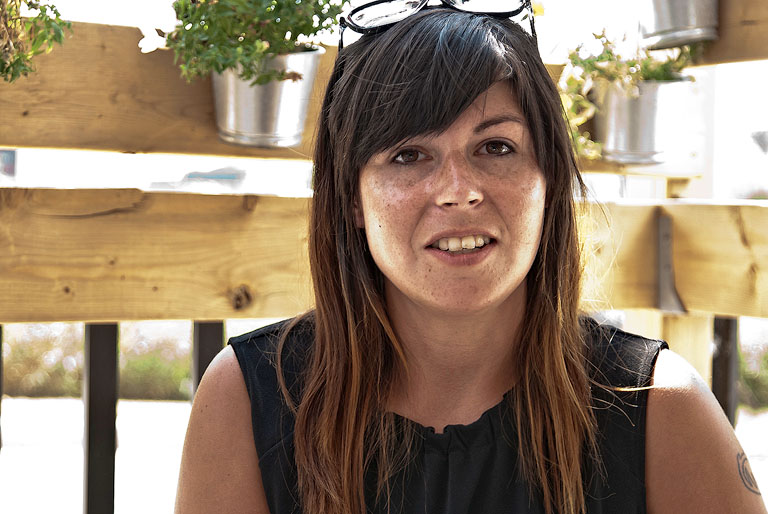
“I think we learned a very big lesson, a very valuable lesson in this, in that we were completely unprepared for this. I think preparedness is important and we can use this opportunity to learn and grow from it. It’s unfortunate this pandemic has caused so much damage for communities and for all of Canada. Some of that damage is irrevocable, some people will never recover from the damage this has caused. It’s been devastating for the country and the world really,” said Brooks.
“We’ve experienced pandemics before and we were not prepared for this. We should not have been relying on the States for masks. That should not have happened; we should have these supplies.”
“There’s lots of really good things Trudeau’s government has done. They’ve been very diligent about health and safety. Everything has been followed by the World Health Organization. That’s important, the Green Party is very science based. My views are very green, so I feel when the science is telling us one thing and the Trudeau government took that and made their recommendations that was a good step.”
Healthcare
The sister topic to COVID is discussing healthcare. A book could be written about various aspects, tweaks, and overhauls, but the premise has been with all candidates about privatizing service.
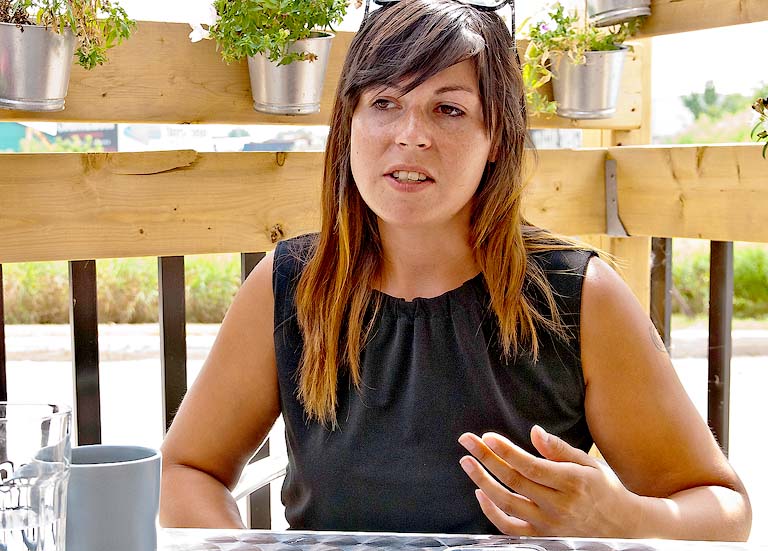
“As far as I know it’s more so in Alberta than it is here in Ontario. Until recently, I hadn’t heard much about that moving dark cloud happening here in Ontario,” said Brooks. Of course, the provinces operate their healthcare systems with transfer grants from Ottawa.
“And 40% of that funding goes directly to administrative staff, not doctors, not nurses, not equipment,” Brooks said.
“I think it should definitely include those things. Whatever needs to be done to keep that healthcare system and make it better, build on what we already have. I think that’s something that needs to be done and I would definitely work towards doing that within the best of my abilities.”
Completing the trifecta of health related inquiry is abortion. If you missed the reasoning given in previous profiles for why this is a topic, the short strokes are, there are MPs and candidates who would love for it to come up for a vote.
“I am pro choice,” Brooks said. “I don’t really know what there is to debate about anymore. I don’t know why we keep going back to this. For me, it’s not an available issue because it’s been settled. If you want to talk about an issue something like forced sterilization, that is an issue. I think it happened here in Orillia (in the past). As far as Indigenous people go, there are some fairly recent cases of forced sterilization.”
Media Issues
This hydra of a subject actually makes some people’s heads spin, judging by the opinions they form after spending time in the media rabbit hole. There are a number of problems which need addressing and most of them revolve around being truthful, and controlling the message. Some mainstream media make no attempt to balance news coverage, or in trying to appear balanced will put anyone with a title (real, or not) in front of a camera to spout whatever nonsense they can without challenge.
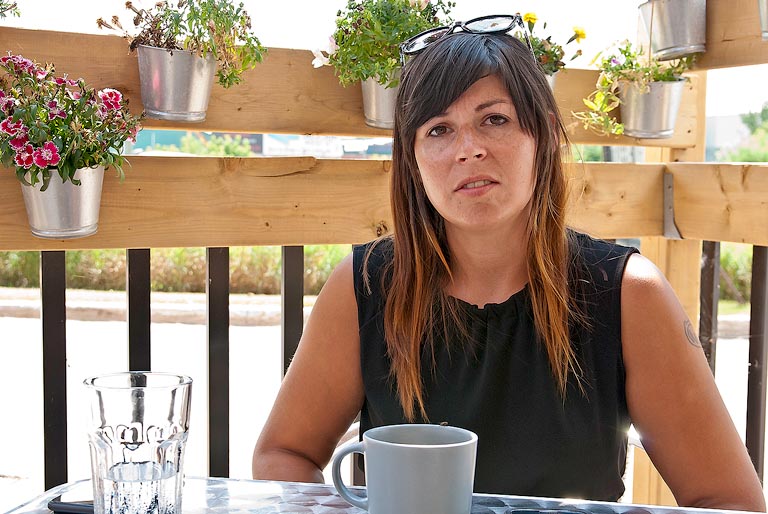
“I’ve seen both recently. (A report) completely excluded Stephen Makk from the People’s Party and it bothers me because that is so undemocratic. He is a candidate in the riding,” said Brooks. SUNonline/Orillia pointed out at the time of this interview MAKK was not an official candidate yet. “Neither am I, but I’ve been included. I’ve got my signatures; it’s just a matter of handing it in. I think media value profit over narrative, it’s about those clicks,” said Brooks.
“The CTV gets away with upholding that mandate by saying they follow that when they really don’t. So, they are verifying themselves as an accredited source when that’s not actually the case,” said Brooks about her experience in front of a TV camera.
“I had not said a word about what my platform was. I happened to mentioned this pandemic has been very hard, like I did earlier (in this interview) on people and small businesses and it increased homelessness – it’s absolutely terrible – and that’s what I had said, but it was twisted, so my platform includes a main priority to be COVID, even though I didn’t say that. I’m not saying it’s not important and shouldn’t be a priority, but I didn’t say that.”
Is it time for the government to revisit some old fairness regulations and ownership rules?
“Absolutely. Not only that, racism lives in the media. It’s almost a guarantee that most news sources who write or showcase an Indigenous issue, almost always turn their comments off immediately because they (commenters) tend to show (the) bias in the media. A lot of them are very supportive, but a lot of articles are very biased and uninformed. It’s almost like they turn off the comments to avoid any sort of accountability,” said Brooks. Her personal experience with how she thinks news media lacks integrity extends to National media too.
“Jorge Barrera (CBC), I was at the Missing and Murdered Indigenous Women and Girls, the inquiry closing ceremonies. We hadn’t even read the books; there’s two books, two parts to it. It’s called Reclaiming Power and Place (The Final Report of the National Inquiry). We hadn’t even read the calls for justice out loud to ourselves. I’m not sure who, I have no idea, but somebody leaked it to him and he sold out his own people for profit. He wanted to be the first reporter to write about the calls for justice. It was really devastating for everybody who worked so long and so hard on that to have it leaked in that way. This would have been two nights before the closing ceremonies. We were supposed to present it to the prime minister. It was very upsetting, it was very angering and it was done out of greed.”
On the internet, editors, are few and far between, so people get away with saying anything – and others believe them. The big players, Facebook, Twitter, etc. absolve themselves of any responsibility.
“I think we need to quit dragging our toes on it and take it seriously. There has to be some kind of policy in place to prevent,” lying, Brooks said. Has the time come for some kind of regulation that makes sense in a post – we didn’t get this right – Bill C-10 world?
“There would have to be a guarantee of no interference. Government policy is needed for sure, but it’s not going to decrease the issue,” she said.
Climate Change
This issue is the entire reason the Green Party exists, so naturally, this is where Brooks shines. She speaks a lot about social issues, but she wants people to know her hat hangs comfortably on the green peg.
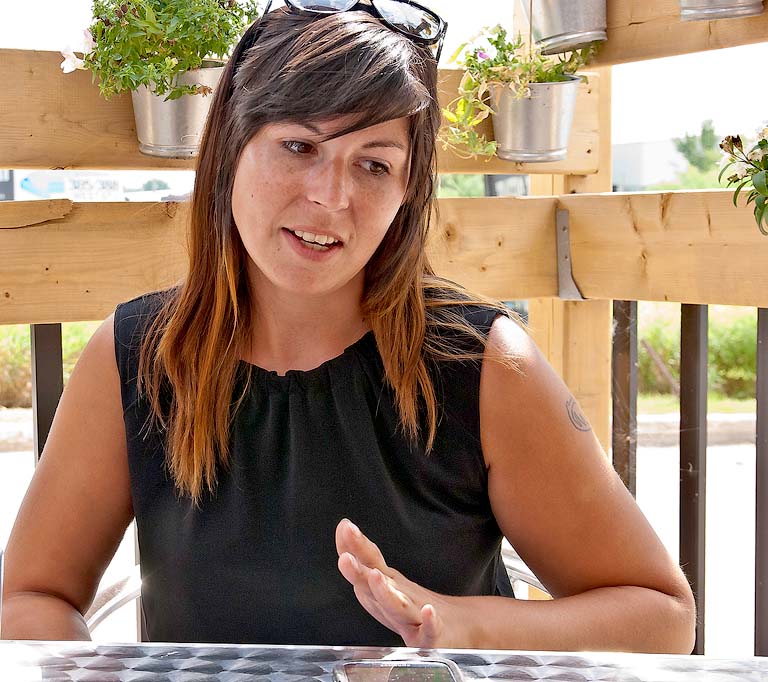
“I have a very different background than most candidates. I have very specific experiences that pertain to the issues that are ongoing right now that are very relevant. I don’t want to make it appear like I am after social justice and the Green Party is (not). I think that is where some people are starting to believe. Climate change is my biggest issue.”
“We are moving backwards as far as (action) goes. Our emissions have not decreased. Justin Trudeau and his government have done a very poor job on this one. We need to start that transition to greener energy. Buying a pipeline just doesn’t fit a climate conscious agenda.”
Some people believe taking action is taking too long. SUNonline/Orillia has wondered out loud if this country could make a wartime type of effort to address the need to switch from fossil fuels to green energy. Brooks thinks that approach is unachievable.
“Climate change is difficult. There is no one solution that is going to get us out of this emergency we are in. There’s 100 other solutions. There are so many different parts to it, like poverty is a big part of this. Other areas have tried to go completely, totally green; Germany, they had switched completely to solar and wind and they ended up producing more CO2 emissions. They couldn’t store that power. They had to turn back on their coal plants. There’s no accurate scale that will tell us what our choices, what the decisions we make will do in the future. The only reliable solution is to bring everybody out of poverty and do as much as we can to reduce emissions,” she said.
“I talk about pro and anti pipelines often. The argument typically is the pipeline is being pushed on sovereign and Indigenous territory. The argument that comes back is, most of the Natives around the pipeline want the pipeline. It’s only a select few. We are talking about severely impoverished people who are guaranteed, temporary income they can provide for themselves and their families. Of course they want a pipeline. Everybody needs to live. That’s’ what it boils down to. If you were to give them an alternative, I promise you most of those people would choose the alternative.”
“I am a believer in Indigenous self-governance, but I also think Indigenous people hold the key to improving our climate. Much of our resources, still intact, are actually on Indigenous land now. I think that tends to speak for itself. We have always been the caretakers of this land and I think there is a decolonization that needs to happen, but for the most part we try to live by that, we’re try to go back to the ways. I think the Indigenous people are very important in climate action.”
What Happens When There Are No Jobs?
Automation is good for some. For some it saves their backs, for quite a few others it make their wallets fatter. The end result is reduced availability of work, or as some futurists predict, mass unemployment when automation matures – soon. Brooks knows the effect of this.
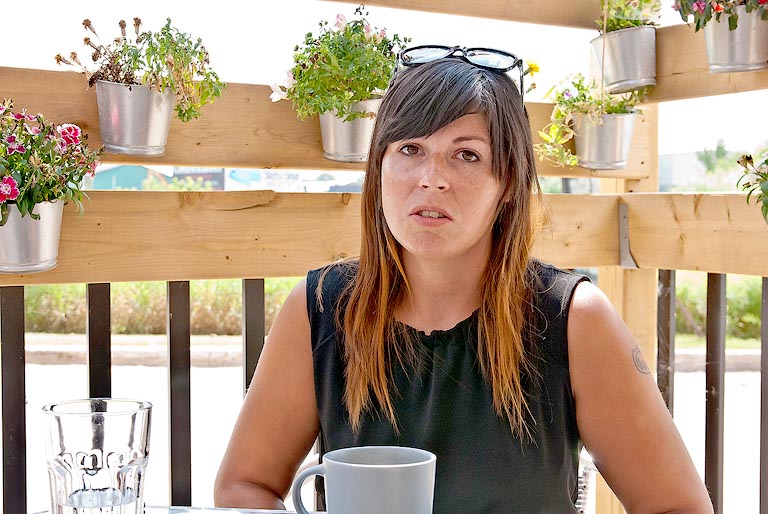
“My kid’s father is a mechanic. When he was really young and doing his apprenticeship he had to do all the work. He had to figure out what was wrong. He had to do that himself. Now there’s a little computer you plug in and it will tell you what’s wrong with the car. It masks itself as efficiency,” Brooks said, continuing that it only gave him fewer work hours on the clock.
“There was actually a line graph of the decline in jobs. It was interesting to me.”
Brooks is familiar with the concept of Universal Basic Income, what it is and what it isn’t, she even sees some benefits that often get glossed over by proponents and UBI is a need.
“Yes. We spoke about policing; decreasing the need for policing is a viable option. It would be to look at things like why there is so much criminal activity. The number one cause is poverty and a Universal Basic Income would help with that, giving people a guarantee of food security and adequate and affordable housing. If its climate change, poverty is a big issue, it impacts climate change. Once again Universal Basic Income would help pull those people out of poverty,” she said. So UBI is a need?
Learning From Boy Scouts
Most of the major issues Canadians face, which also happen to be election hot topics, are so because we did nothing about problems many saw coming. Housing, healthcare, climate change – the pandemic, you name it, someone was writing or making documentaries about the issues years ago. Is it time to set up a ministry charged with staying at least one step ahead of calamity?
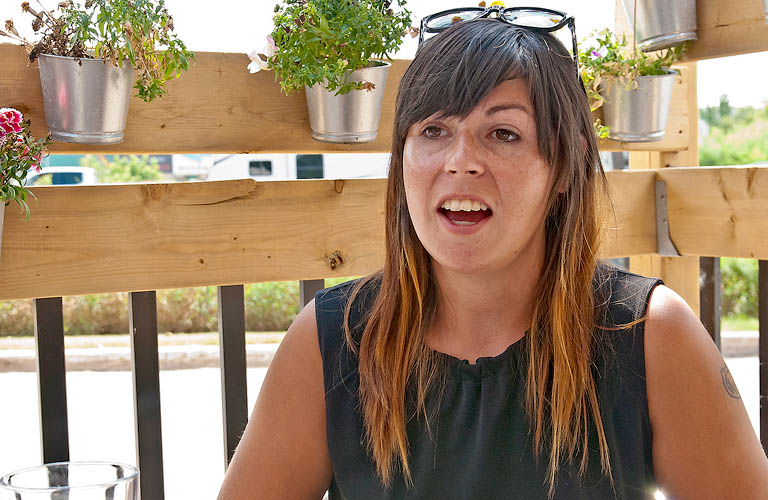
“We can’t compromise when it comes to climate change. Preparedness was the thing we didn’t have. We’ve been through a pandemic before. The fact it was predicted and we were not prepared, we ignored those warnings. To prevent that I think we do need it,” Brooks said.
“That would only be effective without government interference. Politicians have an agenda that is either self-serving, or in Justin Trudeau’s case, is serving corporate interests. If a politician who has an agenda decides we need this, but has control over who the studies are guided by, who this information is coming from, that’s what I mean by government interference. It’s very easy to control the narrative. It would have to be separate from the government,”
One of the reasons most issues fester is because boardroom occupants can’t see anything but cost and no profits in preparing. Then when the manure hits the fan and their paypackets are threatened they turn to the public treasury to bail them out. Take the housing crisis for example. As long as someone is making money and not too many are losing their homes, it seems little will be done but talk about it. Greed wins.
“My mom is living right beside a house that was bought in April. They were working on renovations, they were there for several weeks and then they haven’t been back for months and its sitting there empty. They can afford to do that,” said Brooks.
When the money had to be spent during the pandemic, not being prepared meant the rules for receiving help were hastily devised and in some aspects not well considered. The pandemic enriched big business and no one, except those who aren’t in government, seems to care. We’ve all heard of many big companies which took relief money and didn’t use it as intended.
“Neither did the casino in Rama. They did the very same. They are a hotel and a casino. They shut down completely and they got that money. The only way they could get that money is if they shut down completely and there was no reason for it, in my opinion the hotel part could have remained open,” said Brooks. But the hotel was built for casino patrons, who would stay there if the casino is closed? “When it was closed there was tons of people staying at the Days Inn. That parking lot was always full, there was always people there.”
China
Speaking of being taken advantage of. Many people want to cut ties with the Chinese government, but just don’t see how it can happen without catching our own suspenders between the blades. We can’t do nothing at all, and Brooks doesn’t have an answer either.
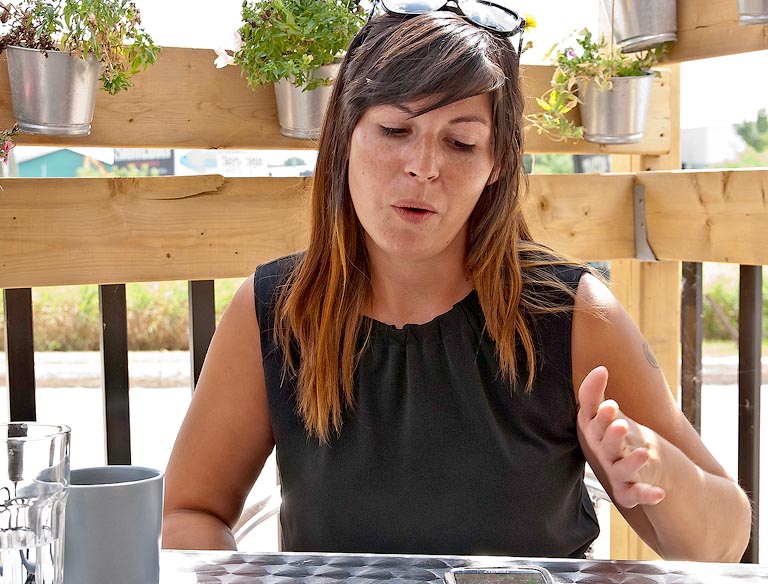
“Currently under the Liberal government under Justin Trudeau, he allows that space for that influence to happen. He opens those doors. They call him Little Potato (Trudeau sounds like the Chinese word for potato). I would be flattered to be called Winnie the Pooh, Potato not so much,” said Brooks.
“I think the mudslinging goes both ways. Foreign investment is a huge issue. Huawei, one of the executives was arrested in Vancouver, the way the prime minister handled that, based on my knowledge of the situation, was wrong. They backed out of trade, the canola oil, it was more than that, and Alberta suffered greatly for that. The prime minister went on and talked about how the Canadian government, the prime minister’s office does not interfere in the judicial process. A week later he was caught doing that very thing with Jody Wilson-Raybould,”
Our housing situation isn’t helped by Chinese money either.
“It’s exacerbated by foreign investment and a huge part of that is Chinese. Some kind of vacancy cap is, I think, appropriate,” Brooks said.
“Another example is Manitoba Mukluks (some consumers report they received product with Made in China labels). A lot of them are started in Vietnam and then shipped back to Canada and finished in Canada, but because they are finished, something simple as just a lace, in Canada they are allowed to say they are made in Canada and they are actually not.”
Should the government be taking a harder line with the Chinese government on a range of issues?
“Yes, I think decreasing our reliance. I don’t think punishing them is the way to go,” she said. “I think it took years and years to build where we are now. I think it’s possible it may take, maybe that amount of time,” Brooks said, to extract ourselves from reliance on Chinese goods. “I don’t think ripping it off like a bandaid is the way to go. I don’t think that’s’ going to be effective.”
The Last Word
As usual, the candidate gets an opportunity to speak about topics not part of the common to all format.
“Truth and Reconciliation is a big one for me. I believe we are just entering the stages of truth and truth has to come before reconciliation can even be talked about. I do not think under this current government we headed in an appropriate direction towards truth or reconciliation. It has not been a priority. The entire country has been shocked by the news of these children. A lot of people chose to look away and there were a lot of people who genuinely did not know because that information has been, the government has never been fully transparent on Indigenous people and I think that needs to change. The prime minister has spent millions of dollars fighting residential school survivors in court over settlements. Just the acknowledgement of the child welfare system and the judicial system being continuations of those residential schools is really important to me,” Brooks said.
(Photos by Swartz – SUNonline/Orillia) Main: Simcoe North Green Party candidate Krystal Brooks.
Support Independent Journalism
Previous Profiles:

